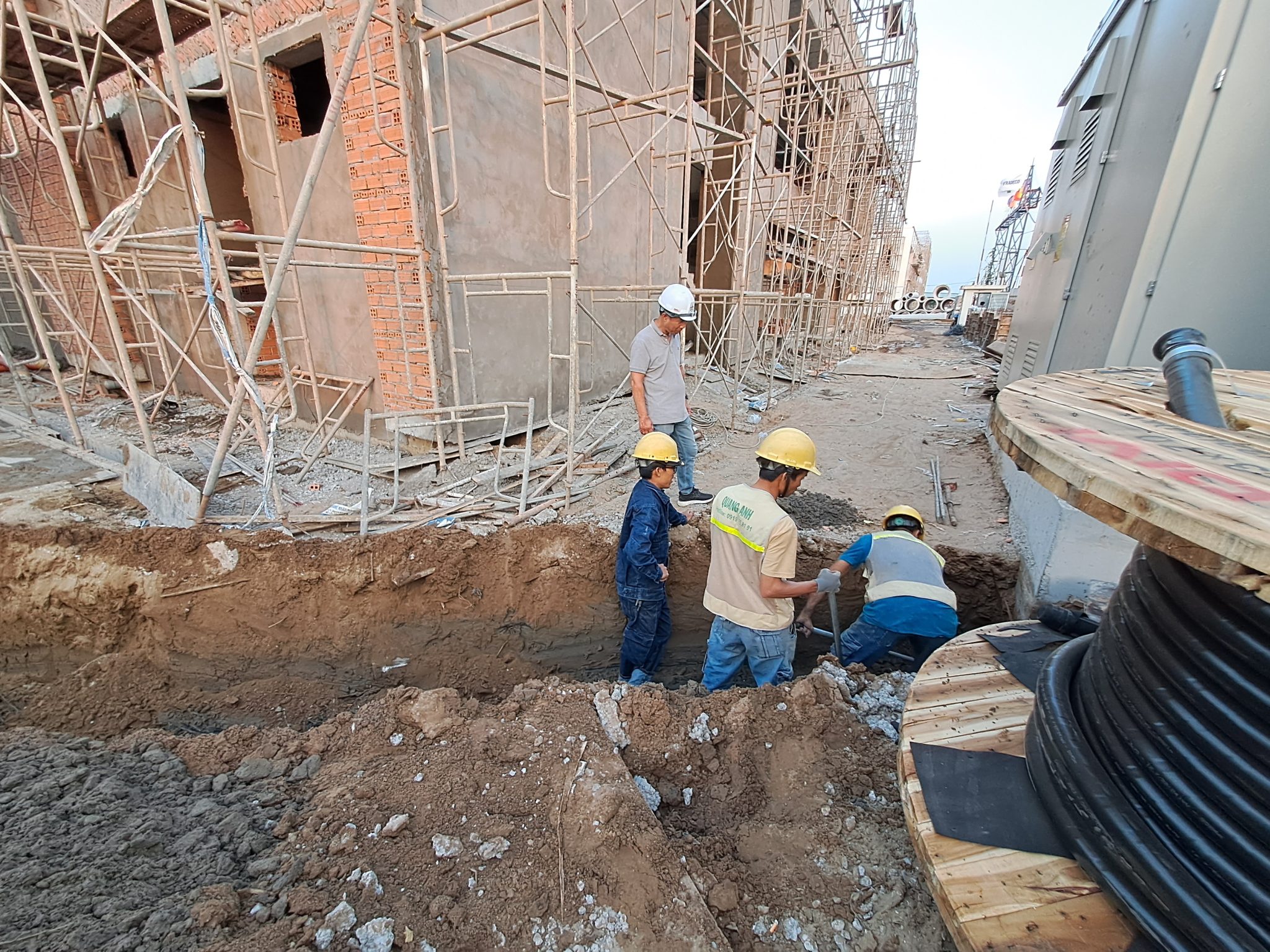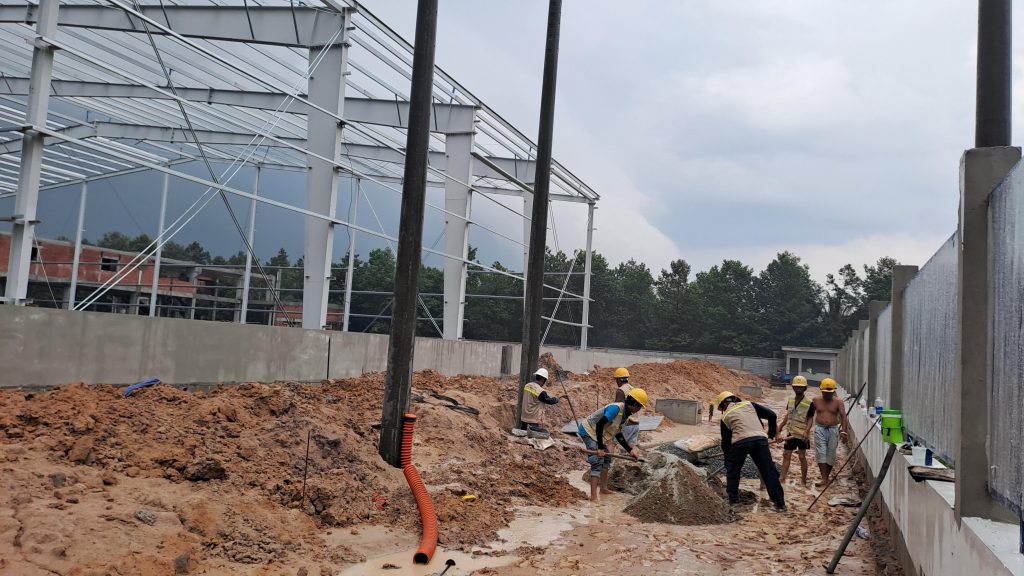News
Electric System Quotation and Considerations
Information on electricity prices and installation costs of electric systems in Vietnam in 2025, including electricity prices and investment costs for solar power systems.
Electricity prices by voltage levels in 2025
Retail and commercial electricity prices in Vietnam in 2025 are significantly adjusted according to voltage levels and usage times. For example: voltage levels from 110kV and above range from 1,146 VND/kWh during off-peak hours to 3,266 VND/kWh during peak hours, with an average increase rate from 2.99% to 3.12% compared to the old prices. Prices for institutions such as hospitals and schools are also separately adjusted, ranging from 1,940 to 2,072 VND/kWh.
In 2025, electricity prices undergo many important changes for both residential and commercial electricity. According to Decision 1279/QD-BCT, residential electricity pricing is applied with 6 new phases starting from May 10, 2025. The average retail residential electricity price has increased to 2,204.0655 VND/kWh, up 4.8% from the previous year, reflecting a clear adjustment in electricity prices.
Residential Electricity Prices 2025
Regarding residential electricity prices:
- Phase 1 (0 – 50 kWh): 1,984 VND/kWh
- Phase 2 (51 – 100 kWh): 2,050 VND/kWh
- Phase 3 (101 – 200 kWh): 2,380 VND/kWh
- Phase 4 (201 – 300 kWh): 2,998 VND/kWh
- Phase 5 (301 – 400 kWh): 3,350 VND/kWh
- Phase 6 (over 400 kWh): 3,460 VND/kWh
Commercial and Production Electricity Prices
In the business and production sectors, electricity prices see similar adjustments from May 10, 2025, reflecting increased input costs:
- Voltage levels from 110kV and above:
- Normal hours: 1,728 VND/kWh
Notably, business electricity prices with voltage levels below 6kV peak at 5,422 VND/kWh during peak hours, posing significant challenges for businesses in optimizing energy costs.
Other Information
For those using prepaid card meters for residential electricity, the price is set at 2,909 VND/kWh. Additionally, the electricity price adjustment mechanism is implemented every three months if input costs increase by 2% or more, to accurately reflect economic fluctuations.

Solar power installation costs for households
Installing rooftop solar power systems for households offers many long-term economic benefits. Installation costs depend on capacity, ranging from 35 to 45 million VND for a 3 kWp system, generating about 360 kWh/month. For 10 kWp capacity, costs go up to 90 to 99 million VND. Savings from solar power systems are most evident when monthly electricity bills exceed 1.5 million VND.
Choosing solar power system capacity
Rooftop solar power systems are an effective solution for electricity savings and reducing greenhouse gas emissions. However, to optimize costs and efficiency, choosing the appropriate capacity is crucial. Popular systems include:
- 3 kWp: Suitable for moderate household electricity needs, investment costs from 35 to 55 million VND, producing about 360 kWh monthly.
- 5 kWp: Preferred by many small business households, providing 600 – 700 kWh monthly with costs ranging from 80 to 116 million VND. Solar power at this capacity also has a payback period of 3.7 to 4.6 years.
- 10 kWp: Suitable for large households or medium businesses, producing about 1,200 kWh monthly. Costs range from 160 million to 233 million VND, with electricity savings benefits of about 9.4 million VND per year.
- 15 kWp: Highly regarded by larger families, producing about 1,800 kWh monthly.
Factors affecting costs
Installation costs depend not only on capacity but also on other factors such as:
- Equipment quality: Choosing brands like ABB, Mitsubishi, LS, and Schneider can affect overall pricing.
- Installation location: Solar radiation and specific local climate conditions greatly affect system performance.
- Other costs: Prices do not include VAT, maintenance fees, and depend on transportation costs.
Savings and payback period
Solar power systems not only provide energy savings but can also achieve a payback period of 3 to 5 years depending on capacity and usage conditions. It is important for customers to thoroughly consider system suitability to optimize savings and maximize solar energy effectiveness.

Considerations when quoting electric systems
When quoting electric systems, several factors must be considered, including current electricity prices, the system’s power capacity needs, and the type of equipment used. Commercial and residential electricity prices are state-regulated, forming the basis for quotations. Technical factors such as the type of solar panel, inverter, and after-sales service policies from the supplier must also be carefully considered to optimize investment efficiency.
- Ensure technical and safety standards: When quoting electric systems, technical and safety factors are extremely important. The electrical schematic needs to be designed to optimize easy operation, automation, and flexible troubleshooting. Ensuring technical standards not only helps the system operate safely but also prolongs equipment lifespan. Electric system pricing should be considered in the context of these standards.
- Accurate load distribution: To optimize load distribution, accurate load sharing is required. This helps in selecting appropriate wire sizes and circuit breakers, preventing the risk of fire due to incorrect power distribution. Technical standards play a significant role in ensuring reasonable and safe power distribution.
- Economic calculation and cost optimization: During quoting, focus on cost optimization. Ensuring appropriate construction and material costs can prevent wastefulness and reduce unnecessary expenses. Electric system pricing should accurately reflect these factors to provide the most reasonable quotation.
- Material and labor costs: A comprehensive quotation must include both material and labor costs. This helps limit additional costs arising during project implementation.
- Compatibility with scale and usage purposes: Quotations should align with usage purposes and be suitable for the project’s scale, whether it’s a residence, factory, or other building.
- Prepare relevant documentation and procedures: Especially for three-phase electric systems, consider all Electrical safety requirements and related fees such as installation procedures, taxes, permits, etc., to avoid legal issues.
- Field survey: Before issuing a quotation, conducting a field survey is necessary to ensure the quotation is accurate and feasible, suitable for actual construction conditions.

Understanding the structure of electricity prices and installation costs helps individuals and businesses optimize investment strategies in new electric systems. Considering technical and financial aspects is essential to achieving economic efficiency and sustainable energy use.
Contact QuangAnhcons via hotline: +84 9 1975 8191 for detailed consultation and updates on effective electric system solutions.
QuangAnhcons provides consulting, design, and installation services for electric systems, including rooftop solar power, using advanced technology and a professional technical team to ensure efficiency and savings for customers.

 Tiếng Việt
Tiếng Việt 简体中文
简体中文 Deutsch
Deutsch 日本語
日本語 한국어
한국어 ไทย
ไทย Русский
Русский Français
Français
